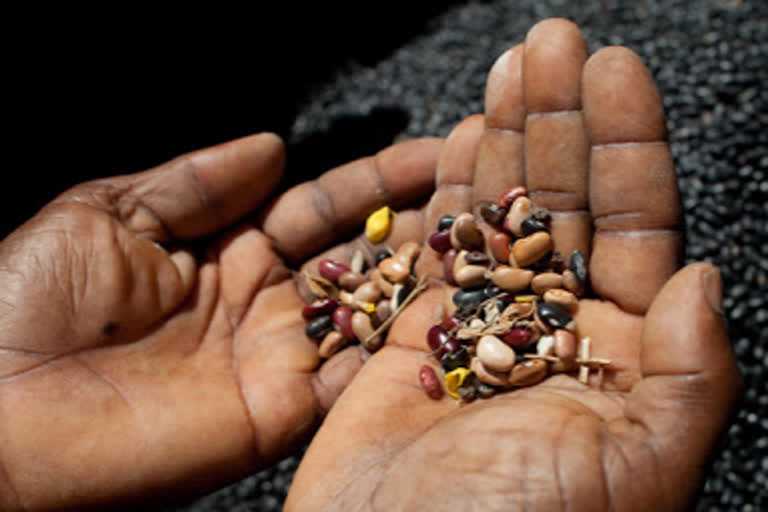Hyderabad:The onset of monsoon and the initial showers invite the peasantry to prepare the soil for seeding process. As in the past, this year also, the farmer is worried about the quality of the seeds which will be available to him.
Taking advantage of the farmer's necessity to complete sowing within the time frame, fraudsters are again spreading their vicious net on the agriculture market.
The very next day of the exposure of fake cotton seed stocks in Manchiryal, Kagaznagar and Shaadnagar, the drama was again repeated in Karimnagar. With information about the supply of adulterated stock to various locations from Hyderabad, Karimnagar police have uncovered 18 quintals of fake cotton seeds.
The sixteen task force raids in last July brought to light the supply of fake seeds on trains to various parts of Telangana via AP and Maharashtra. Complaints about the supply of fake seeds have been rising for years in Guntur, Prakasam, Khammam, Nalgonda, Warangal and Anantapur districts. This is not limited just to the two Telugu states.
A huge racket of fake seeds was recently busted in the searches by the Ludhiana (Punjab) police following a written complaint by a farmer that the seeds are being sold at a higher rate of Rs 200 per kg instead of Rs 125. Seizure of about one crore worth adulterated stock in Dharwad, Bellary, and Haveri areas of Karnataka last month proves that this nefarious activity is being spread by the fraudsters to various states, crossing boundaries. In spite of all the claims that the fake seed dealers will be severely punished, this annual tragedy is repeating unabated in the country.
As the Telangana CM KCR recently noted - adulterated seed traders are peasant murderers. There is no second opinion that the fake seed business should be completely banned. His comment that these anti- social elements must be booked under the Preventive Detention Act and pushed behind bars should be given high priority and acted upon.
In fact, amendments to the rules and regulations related to the use of high-quality seeds have been accumulating in the country since 1966. The bill, aimed at building a strong legislative act, has been lying in the proposal stage for the last sixteen years.
